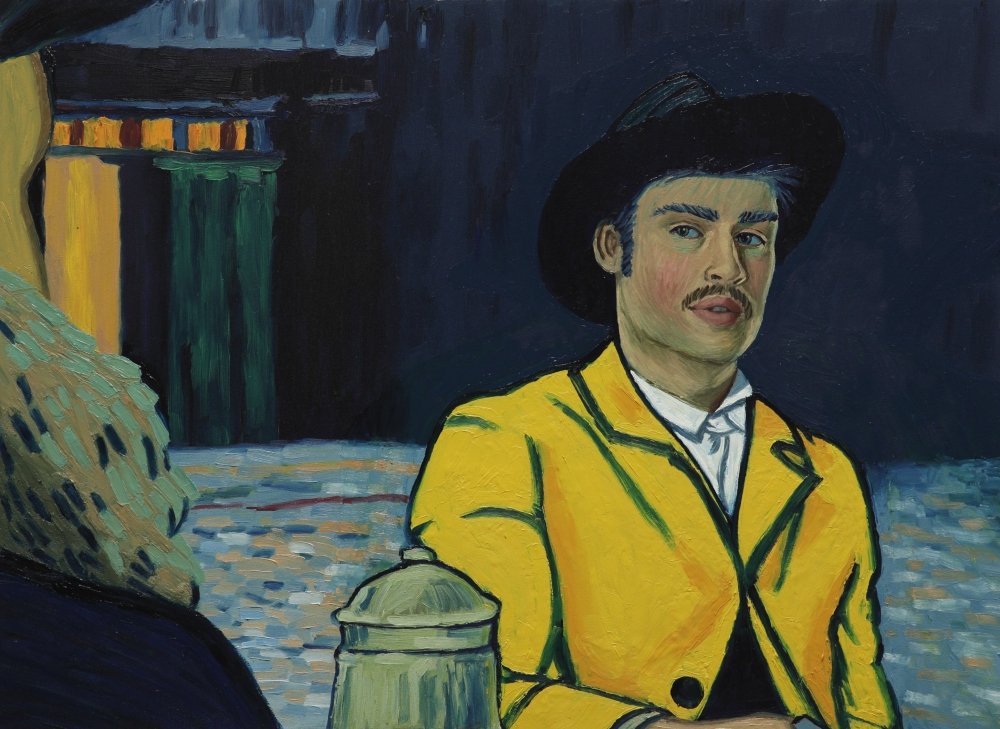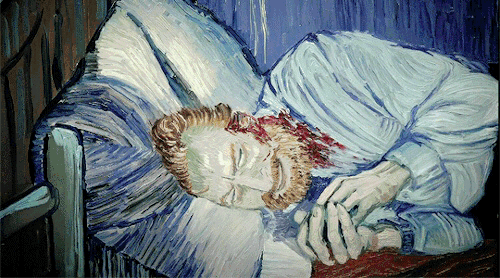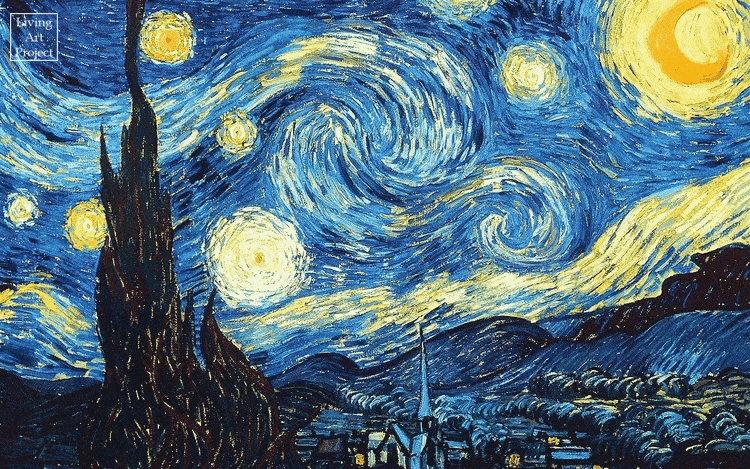“I want to touch people with my art. I want them to say: he feels deeply, he feels tenderly.” – Vincent Van Gogh.
Vincent Van Gogh. A name synonymous with visions of vibrant dreamscapes, interspersed with swirling, throbbing objects, which evoke a sense of bittersweet longing. Dabbing his brush in bright colors, Van Gogh brought about a sense of cathartic metamorphosis in his natural landscapes – a process achieved through hours of painting in solitude, while battling demons which inflicted deep, festering wounds. Wounds so complex and ancient, that it made Vincent cut off his left ear out of rage, guilt, and shame, while he wept profusely in naked loneliness, like a child, under the solemn darkness of nightfall in Provence, France.
With the ambition to weave visual poetry on screen and pay homage to the 19th-century Dutch painter, Dorota Kobiela and Hugh Welchman, along with a team of 125 artists, created Loving Vincent, which can be described as “a long and arduous labor of love” (Scott 1). This ‘biopic’ is first of its kind, sporting 65,000 oil-painted frames, which took more than ten years to complete – the film delves into an investigation of Van Gogh’s final days while attempting to reconstruct the circumstances surrounding the artist’s suicide, allegedly via a self-inflicted gunshot wound. The mantle of the narrator is donned by Armand Roulin (Douglas Booth), who is sent by his father (Chris O’Dowd), a postmaster in Arles, and friend of Vincent, to deliver the artist’s final letter to his brother Theo.

This quest gives way to a series of fresh developments, twists and turns, while transforming into a journey marked by the accounts of individuals who knew Vincent in myriad ways – including noted paint supplier Pere Tanguy, Vincent’s psychiatrist, Dr. Gachet (Jerome Flynn), and his daughter, Marguerite (Saoirse Ronan). At this point, the storyline dries up and falters, as we are swept up in a rather stiff speculation regarding a possible homicide, which fails to offer anything either concrete or interesting. However, the merit of this art-piece lies in its wild beauty, in its re-creation of eerie and surreal nightscapes that sweep you into the realm of nostalgia and melancholy, and in the performance of Robert Gulaczyk, who heightens and subverts the trope of the ‘tortured artist’ simultaneously, while bringing the tale of the unsung genius to life.

In conclusion, although imperfect, Loving Vincent is an essential cinematic piece, an emotionally-charged synesthesia, a sentimental tribute crafted with utmost care and dedication. The takeaway is this: Vincent Van Gogh was a man as vibrant as his paintings; a canvas of somber moods darkened by maddening depression, yet splashes of bright yellow strokes adorned his meadows and sunflowers and seeped through his starry nights.



